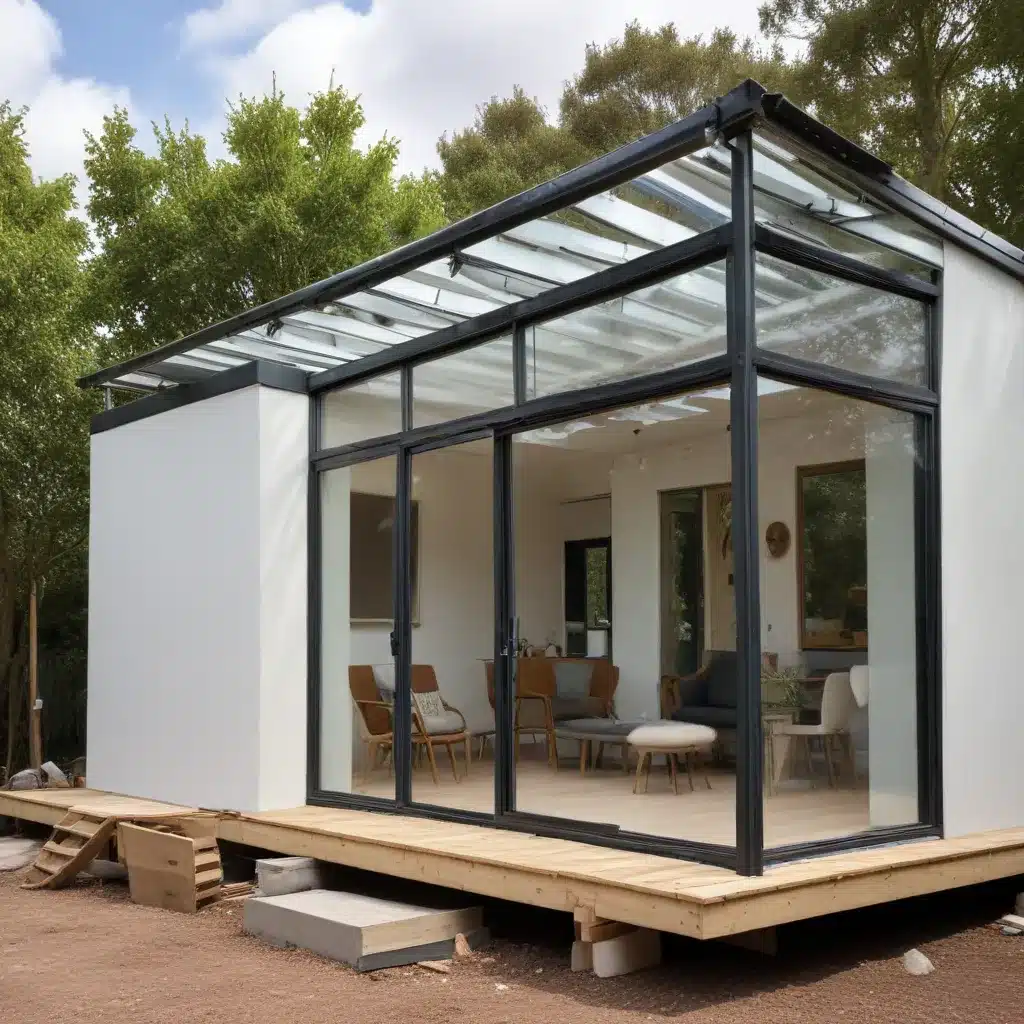
Sustainable Home Extensions: Integrating Sustainable Building Modular Building Quality Control
As an experienced home extension consultant, I’m excited to share insights on sustainable home extensions that seamlessly integrate modular building techniques and quality control measures. In today’s climate-conscious world, homeowners are increasingly seeking eco-friendly solutions that not only reduce their environmental impact but also provide long-term cost savings and design flexibility.
Let’s dive into the key principles of sustainable home extensions and explore how modular construction can play a pivotal role in achieving these goals.
Sustainable Building Principles
At the core of sustainable home extensions lie three fundamental principles: energy efficiency, renewable materials, and waste reduction.
Energy Efficiency: A sustainable home extension must prioritize energy efficiency to minimize its carbon footprint and reduce ongoing operational costs for homeowners. This can be achieved through strategic design choices, such as optimal building orientation, high-performance insulation, and the incorporation of energy-efficient windows, lighting, and appliances. By maximizing the use of natural light and ventilation, you can significantly reduce the reliance on artificial heating, cooling, and lighting, ultimately lowering energy consumption.
Renewable Materials: The selection of sustainable, renewable building materials is crucial for minimizing the environmental impact of a home extension project. This could involve the use of recycled steel, bamboo, straw bales, or reclaimed wood, all of which have a lower carbon footprint compared to traditional construction materials. These eco-friendly alternatives not only contribute to a more sustainable build but also often showcase unique aesthetic qualities that can enhance the overall design.
Waste Reduction: Sustainable home extensions should aim to minimize construction waste throughout the entire project lifecycle. Modular construction, as we’ll explore in the next section, plays a key role in reducing waste by optimizing material usage and streamlining the construction process. Additionally, incorporating circular economy principles, such as the reuse and recycling of materials, can further contribute to a more sustainable approach.
Modular Building Systems
Modular construction is a game-changer when it comes to sustainable home extensions. This innovative approach involves the prefabrication of building components in a controlled factory environment, which are then assembled on-site.
Prefabrication: The factory-controlled setting of modular construction allows for precise manufacturing, reducing material waste and ensuring consistent quality. Components are meticulously engineered and constructed off-site, minimizing the disruption to the homeowner’s property and the surrounding neighborhood during the extension process.
Customization: Contrary to the misconception of modular homes being “cookie-cutter,” today’s modular construction techniques offer a high degree of customization. Homeowners can choose from a variety of layouts, finishes, and design features to create a truly personalized extension that seamlessly integrates with the existing structure.
Scalability: Modular construction is inherently scalable, enabling homeowners to expand or modify their extensions as their needs evolve over time. This flexibility is particularly advantageous for growing families or those who anticipate changing requirements in the future.
By embracing modular construction, homeowners can enjoy the benefits of sustainable, energy-efficient, and cost-effective home extensions, all while minimizing the disruption to their daily lives.
Integrating Sustainable Solutions
Sustainable home extensions go beyond just the construction process; they also incorporate innovative strategies to enhance energy efficiency, renewable energy integration, and water conservation.
Passive Design Strategies: Passive design principles, such as optimal building orientation, strategic window placement, and the use of high-performance insulation, can dramatically improve the thermal performance of a home extension. By harnessing natural light and ventilation, homeowners can reduce their reliance on artificial heating and cooling, leading to significant energy savings.
Renewable Energy Integration: Integrating renewable energy sources, such as solar photovoltaic (PV) panels or wind turbines, into the design of a home extension can further enhance its sustainability. These renewable energy systems can be seamlessly incorporated into the modular construction process, allowing homeowners to generate their own clean energy and potentially even become net-zero energy consumers.
Water Conservation Measures: Sustainable home extensions should also prioritize water conservation through the implementation of water-efficient fixtures, rainwater harvesting systems, and greywater recycling. These measures not only reduce the strain on local water resources but also contribute to a more sustainable and self-sufficient home environment.
By thoughtfully integrating these sustainable solutions into the design and construction of a home extension, homeowners can create a truly eco-friendly living space that aligns with their values and reduces their environmental impact.
Quality Control Considerations
Ensuring high-quality construction is paramount for the longevity and performance of a sustainable home extension. Modular construction, with its factory-controlled environment, allows for meticulous quality control measures throughout the entire process.
Material Selection: The selection of sustainable, high-quality building materials is crucial for the long-term durability and energy efficiency of a home extension. Modular construction companies work closely with material suppliers to ensure that the components used meet or exceed industry standards and environmental certifications.
Construction Processes: In a factory setting, modular construction benefits from stringent quality control protocols, including independent inspection and testing at every stage of the manufacturing process. This level of oversight helps to identify and address any potential issues before the components are delivered to the construction site, minimizing the risk of defects or performance issues.
Performance Monitoring: Sustainable home extensions should also incorporate ongoing performance monitoring to ensure that the energy-efficient features and renewable energy systems are functioning as intended. This can involve the integration of smart home technologies, regular maintenance, and periodic energy audits to identify any areas for improvement or optimization.
By prioritizing quality control throughout the design, construction, and operation of a sustainable home extension, homeowners can have peace of mind knowing that their investment will deliver long-term benefits and minimize the need for costly repairs or retrofits.
Sustainable home extensions that integrate modular construction techniques and quality control measures offer a comprehensive solution for homeowners who are committed to reducing their environmental impact while enjoying the benefits of a custom-tailored, energy-efficient living space. By embracing these principles, you can create a home extension that not only enhances your property but also contributes to a more sustainable future. To learn more about our sustainable home extension services, please visit https://abc-home.co.uk/home-extension/.
















